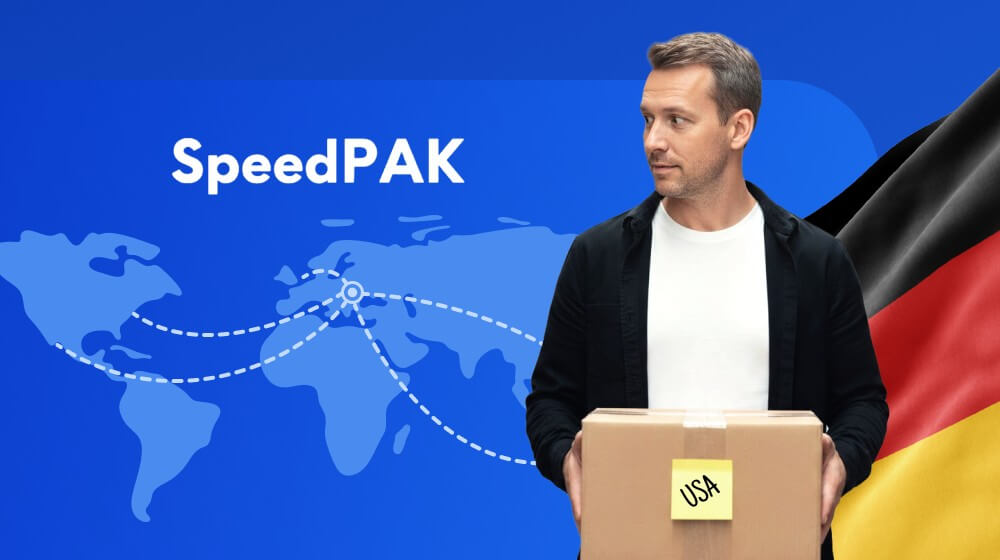The European Green Deal is a set of policies that should enable Europe to become a climate-neutral continent by 2050.
The ESPR is just one among countless policies designed to facilitate this transition and encourage the circular business model in the EU.
The DPP initiative will ensure the data collection and free flow of information regarding product sustainability, traceability, and repairability between manufacturers, consumers, and market surveillance authorities.
As a result, products from the electronics and textiles categories may require the basic DPP as early as 2026, while by the end of 2027, all products entering the EU’s online marketplaces will need a digital passport.
Furthermore, DPPs will likely become necessary to demonstrate compliance with the General Product Safety Regulation because they will contain compliance documents and serve as a substitute for the Declaration of Conformity.
In this article, we’ll look at the changes the DPP will bring into the EU’s ecommerce sector and how online sellers can prepare for it to ensure compliance with the GPSR.
Key takeaways
- The DPP will contain information about a product’s origin, materials, environmental impact, energy efficiency, compliance documentation, circularity information, and disposal guidelines.
- All DPP data will be stored in the Digital Product Passport Registry, which will be established by July 19, 2026.
- Batteries, apparel, and footwear are among the first product categories frequently sold online that will require DPPs.
- A Digital Product Passport will not automatically prove the product’s GPSR compliance, despite containing its technical documentation and other relevant information.
- The rollout of DPPs is expected to occur in several stages, the first of which should start in late 2026 or early 2027.
Overview of the Ecodesign for Sustainable Products Regulation

According to the Ecodesign Your Future study, around 80% of a product’s environmental impact occurs during production.
The ESPR is the harmonization legislation that introduces the same set of Ecodesign requirements throughout the EU.
The legislation strengthens the Union’s circular economy, enhances transparency and sustainable business practices by encouraging companies to manufacture durable, recyclable, reusable, and repairable products.
However, the ESPR doesn’t present specific sustainability requirements that manufacturers selling in the EU must follow.
Instead, it provides a framework that the European Commission can utilize to introduce delegated acts that outline sustainability requirements for different categories of products.
The legislation will have a profound effect on the ecommerce industry as manufacturers, distributors, and importers will have to comply with the following obligations:
- Determining if the product’s regulatory compliance
- Measuring the product’s environmental impact across the entire value chain and offering other sustainability data
- Preparing technical documents and assessing a product’s conformity
- Checking if the product has the necessary identification and traceability information
- Ensuring that the contact information is available to consumers and relevant authorities
- Guaranteeing the accessibility of user manuals
What is an EU Digital Product Passport?

An EU Digital Product Passport is an electronic document containing detailed information about a product throughout its supply chain. Its purpose is to allow consumers to quickly access information about a product’s sustainability, safety, or environmental impact and help them make informed purchasing decisions.
Once they’re rolled out, DPPs will replace the Declaration of Conformity, which means that economic operators can no longer place products on EU marketplaces without obtaining the DoC.
A product’s passport will allow market surveillance authorities to check almost instantly whether a product has undergone the necessary safety assessment or if it complies with the EU’s safety regulations.
Moreover, DPPs should facilitate the identification of responsible parties in the event of a product recall by fostering data transparency and providing an extensive digital record of the product’s lifecycle.
The definitive list of products sold on the European market that will require a DPP is currently not available. Still, the initial reports indicate that it will be mandatory for all types of consumer products except the medicinal, animal feed, and food products.
What’s inside a Digital Product Passport?
The digital passport will contain several categories of information, including:
- Product identification (name, make, model, serial number, manufacturer’s name, and contact details, etc.)
- Technical specifications (size, weight, performance capabilities, power ratings, etc.)
- Manufacturing and materials (Compliance documentation, composition and source of the materials, production process, etc.)
- Use and upkeep (user manual, instructions on how to repair a product, instructions for safe disposal, etc.)
- Sustainability and circularity (information about the item’s supply chain, recycling guidelines, instructions on how to reuse the product and its components, sustainability certifications, end-of-life instructions, etc.)
It’s worth noting that the exact information a DPP will contain depends on the product. For some items, like toys, the passport will also include the CE marking, while others may include information about hazardous substances.
DPPs will likely be available to consumers via data carriers, such as QR codes or NFC and RAIN tags, which should be either physically attached to a product or included on its packaging or accompanying documents.
The Upcoming Digital Product Passport Registry
Although the European Commission adopted the initial working plan for the DPPs on April 19, 2025, the digital registry containing all DPP data will not be available until July 2026.
The database should serve as a hub for economic operators to supply the list of data carriers and unique product identifiers that establish a connection to a specific product’s digital passport.
Customs and market surveillance authorities will have access to the Digital Product Passport system through the ‘EU Single Window Environment for Customs’ in order to validate a passport’s reference.
All items entering EU markets must undergo the reference validation before being made available to consumers. Hence, manufacturers will have to add their products to this registry before releasing them to the market.
It’s also worth noting that consumers will be able to access information included in the DPP registry via public web portals.
The digital product passport implementation timeline and products requiring DPP

The Digital Product Passport implementation will take place in several stages and is expected to continue until the end of the decade.
The publication of the ESPR in the Official Journal of the European Union and the adoption of the ESPR working plan have already laid down the groundwork for the full integration of DPP.
However, the public consultation regarding the DPP rules for economic operators is still ongoing, and the adoption of ESPR Delegated Acts is expected in the second half of 2025. Still, these acts should start entering into force in early 2027.
Even though the DPP will eventually become mandatory for nearly all consumer products, here’s the list of product categories that will be affected first:
- Batteries (including electric vehicle batteries)
- Textiles (including apparel)
- Toys
- Consumer electronics
- Furniture
- Paints
- Detergents
- Chemicals
Online sellers should closely monitor the DPP rollout to stay up-to-date with the latest requirements.
Keep in mind that DPP won’t become mandatory for each of these categories simultaneously, so merchants offering AA batteries on eBay’s European marketplaces will have to ensure that items from this category they offer in their stores have a valid DPP as early as February 2027.
On the other hand, DPP won’t become mandatory for footwear and clothes before mid-2027, which leaves all economic operators involved in their production and distribution with ample time to prepare for the upcoming regulation.
How do EU Digital Product Passports affect the GPSR?
The arrival of DPPs poses significant challenges for manufacturers, as it requires them to gather vast amounts of data across the entire supply chain.
Digital product passports impact the way economic operators across the value chain approach sourcing materials, collecting product data, and disposing of products they offer to European consumers.
To further complicate the matter, numerous brands that currently offer their products on European offline and online marketplaces don’t have procedures in place that would allow them to measure the carbon footprint of individual products.
The regulation’s transparency requirements may also force companies to reveal proprietary information regarding manufacturing processes and similar trade secrets, which could potentially raise data security concerns.
Despite these challenges, implementing Digital Product Passports will likely improve the overall safety of products available to European consumers.
Furthermore, their implementation will make access to crucial information such as product identifiers, the contact details of the EU Responsible Person, or safety instructions even more straightforward.
Moreover, DPPs should make it easier for market surveillance authorities to identify potentially harmful products and recall them from EU markets.
Planning for the future on the EU’s online marketplaces
Even though the implementation of Digital Product Passports may seem distant, preparing for full compliance with the regulation may take considerable effort and time.
Establishing internal processes to track down all the materials used throughout a product’s lifecycle, measure its environmental impact, and create the recycling or reuse procedures requires developing a comprehensive strategy that enables a business to streamline these processes.
Consequently, sellers on the EU’s online marketplaces, especially those who manufacture the products they offer in their stores, shouldn’t wait too long before taking steps to prepare for the upcoming regulation.
About Webinterpret
Webinterpret supports merchants selling on eBay.
Our AI-based solutions enable more effective selling through automated listing localization, advertising, and returns and ensure all products placed on EU markets are GPSR-compliant.
By giving your international customers a full, end-to-end local shopping experience, Webinterpret improves your conversion and helps establish your business globally.






